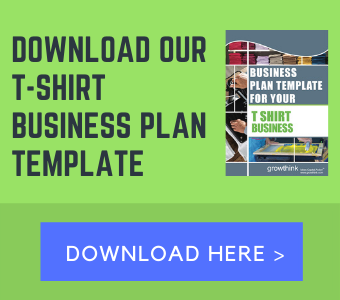T-Shirt Business Plan Template
If you want to start a T-Shirt company or expand your current T-Shirt business, you need a business plan.
The following T-Shirt business plan template gives you the key elements to include in a winning T-Shirt company business plan.
Below are links to each of the key sections of your T-Shirt printing business plan:
T-Shirt Business Plan Home
I. Executive Summary
II. Company Overview
III. Industry Analysis
IV. Customer Analysis
V. Competitive Analysis
VI. Marketing Plan
VII. Operations Plan
VIII. Management Team
IX. Financial Plan
Click below to see each section of our free tshirt business plan template. You can also click here to get our t-shirt business plan pdf.

